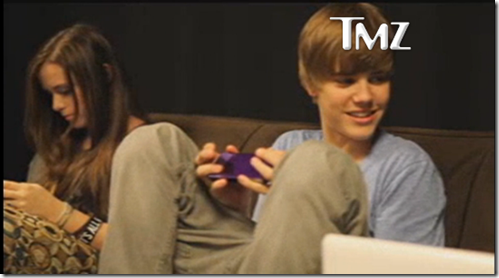What PR Pros Can Learn From Justin Bieber’s Apology
Earlier this week, video surfaced from five years ago of a then 15-year-old Justin Bieber telling a racist joke. If you have the stomach for such things, here’s the video:
(For those who can’t access the video, Bieber’s “joke” asked, “Why are black people afraid of chain saws?” The punchline, delivered in the cadence of a chainsaw, was, “Run, nigger, nigger, nigger.”)
According to the gossip site TMZ, Bieber knew “his own photog was in the room and rolling.” More surprisingly, TMZ exercised some editorial restraint in this case:
“TMZ got this video 4 years ago but we decided not to post it … in large part because he was 15 and immediately told his friends what he did was stupid. People connected with Bieber say one African American was present at the time he told the joke.”
I respect TMZ’s restraint. Racism is too often an insidious force in our country, but I’m not sure targeting teenagers for international condemnation is the best cure. Even TMZ decided to handle this case, in which a minor was involved, differently than it would the public racism of adult stars Michael Richards, Mel Gibson, and Donald Sterling, among others. But whether or not this should be news is irrelevant—it did make news, and Bieber’s team knew it had to respond.
Here’s the statement Bieber released to TMZ:
“As a kid, I didn’t understand the power of certain words and how they can hurt. I thought it was ok to repeat hurtful words and jokes, but didn’t realize at the time that it wasn’t funny and that in fact my actions were continuing the ignorance.
Thanks to friends and family I learned from my mistakes and grew up and apologized for those wrongs. Now that these mistakes from the past have become public I need to apologize again to all those I have offended. I’m very sorry. I take my friendships with people of all cultures very seriously and I apologize for offending or hurting anyone with my childish and inexcusable mistake. I was a kid then and I am a man now who knows my responsibility to the world and to not make that mistake again.
Ignorance has no place in our society and I hope the sharing of my faults can prevent others from making the same mistake in the future. I thought long and hard about what I wanted to say but telling the truth is always what’s right. Five years ago I made a reckless and immature mistake and I’m grateful to those close to me who helped me learn those lessons as a young man. Once again….I’m sorry.”
As PR apologies go, that’s about as good as it gets. Bieber made no excuses, took full responsibility for his actions, apologized, and promised to do better. His apology offers a good template to corporate executives, politicians, and other public figures who find themselves in trouble.
There’s only one part of this apology that’s tough to accept: Bieber’s assertion that “I was a kid then and I am a man now who knows my responsibility to the world.” That line would have more credibility if not for his recent arrest for suspicion of driving under the influence while drag racing (among several other unrelated infractions).
What do you think? Please leave your thoughts in the comments section below.




Sure, the apology is good, but I think it’s safe to say that it was primarily written by a PR team. There are two components to an apology: the apology, followed by a genuine demonstration of behavior to prove the apology sincere. Many people and companies are learning to do the first component well, but fall far short on the follow-through. In Bieber’s case, as with many others, the apology seems a bit hollow when it’s followed by additional stupid behavior that contradicts his “I’m a man now” statement.
Hi Brad,
I’m glad you mentioned his recent behavior that runs completely contradictory to the tone and wording of his apology. The tape of his ignorant, disrespectful and childish interview with police would seem to indicate that Bieber has none of the sensitivity, tact, or insight to make such a humble apology. That and his recent rash of other troubles just underscores the notion that his apology was written by PR staff with little to no input from Justin himself. For me, the most important part of the apology is its sincerity, and how can you have that when this “heartfelt” apology is the lone island of clarity in a sea of immature behavior?
Perhaps that’s the lesson for future corporate/celebrity apologies; for it to be effective, the apology has to be reinforced by something that demonstrates true contrition otherwise the words may just ring hollow.
In Bieber’s case, I might suggest he deliver his apology in a (well produced) video or during an interview so people could actually see that he’s a changed person and that he understands where he went wrong and how he needs to change. What do you think?
Just as a quick follow-up, I happened to catch Jonah Hill on The Tonight Show and thought his apology was outstanding. He took responsibility, talked about it being a teachable moment and displayed a great deal of sincerity by putting himself in front of the live and televised audience.
Brett,
I agree regarding the Jonah Hill apology – he seemed sincere and genuinely aggrieved by uttering a homophobic slur. Stay tuned…I may write something up about this (from a slightly different perspective) later this week.
As always, thank you for reading!
Brad
The tone and structure of Bieber’s apology smacked of PR. Agree totally with Brett and Kim. Actions speak much louder than words. It lacks credibility. Jonah Hill’s seems to be in a different category. Keep up the great work on this blog BTW!